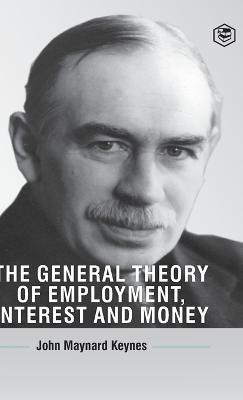The General Theory Of Employment, Interest And Money

The General Theory Of Employment, Interest And Money
The General Theory of Employment, Interest and Money is a book by English economist John Maynard Keynes and is generally considered to be Keynes' magnum opus, and is largely credited with creating the terminology and shape of modern macroeconomics. The General Theory of Employment, Interest and Money had equally powerful consequences in economic policy, being interpreted as providing theoretical support for government spending in general, and for budgetary deficits, monetary intervention and counter-cyclical policies in particular. It is pervaded with an air of mistrust for the rationality of free-market decision making. Keynes denied that an economy would automatically adapt to provide full employment even in equilibrium, and believed that the volatile and ungovernable psychology of markets would lead to periodic booms and crises. The General Theory is a sustained attack on the classical economics orthodoxy of its time. It introduced the concepts of the consumption function, the principle of effective demand and liquidity preference, and gave new prominence to the multiplier and the marginal efficiency of capital.
PRP: 264.45 Lei
Acesta este Prețul Recomandat de Producător. Prețul de vânzare al produsului este afișat mai jos.
238.00Lei
238.00Lei
264.45 LeiLivrare in 2-4 saptamani
Descrierea produsului
The General Theory of Employment, Interest and Money is a book by English economist John Maynard Keynes and is generally considered to be Keynes' magnum opus, and is largely credited with creating the terminology and shape of modern macroeconomics. The General Theory of Employment, Interest and Money had equally powerful consequences in economic policy, being interpreted as providing theoretical support for government spending in general, and for budgetary deficits, monetary intervention and counter-cyclical policies in particular. It is pervaded with an air of mistrust for the rationality of free-market decision making. Keynes denied that an economy would automatically adapt to provide full employment even in equilibrium, and believed that the volatile and ungovernable psychology of markets would lead to periodic booms and crises. The General Theory is a sustained attack on the classical economics orthodoxy of its time. It introduced the concepts of the consumption function, the principle of effective demand and liquidity preference, and gave new prominence to the multiplier and the marginal efficiency of capital.
Detaliile produsului











